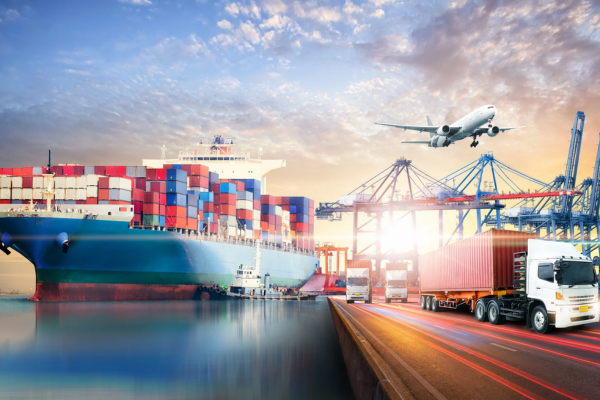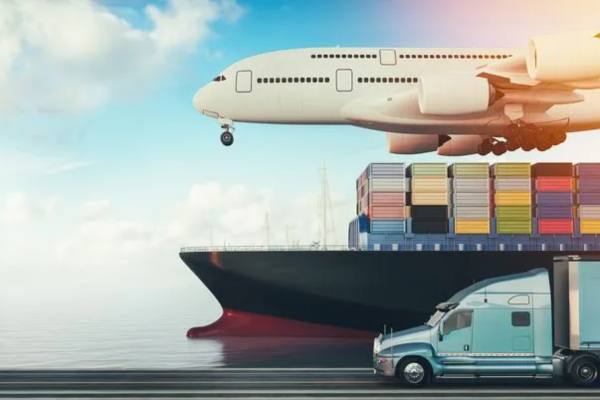The Essential Ingredients for a Thriving Logistics Business
by Pijus Maity Business Published on: 14 February 2025 Last Updated on: 07 May 2025

Running a logistics business isn’t just about moving goods from one place to another. Success comes from a combination of three things:
- Efficiency,
- Strong relationships, and
- Smart decision-making.
So, first, try to get the right foundation. Doesn’t matter if you are starting out or looking to scale.
Now, you may feel challenged to break into the industry. However, some people have a knack for better coordination and are passionate about problem-solving. Logistics business can be significantly rewarding for them.
They are the backbone of global trading. The logistics businesses manage the overall flow of goods. They ensure an efficient and cost-effective way to get the product from point A to point B.
You aim to thrive in the industry. So, you must learn the key ingredients to set up a logistics business for long-term success.
1. Smart Software – The Backbone of Efficiency

Technology is at the heart of modern logistics. Managing shipments, inventory, and routes becomes a logistical nightmare without the right software. The right system brings everything together, making tracking deliveries, planning schedules, and optimizing routes easy.
A good example is Logistics Software Australia, which helps businesses manage orders, track shipments, and analyze performance in real-time. It cuts down on delays, improves customer communication, and ensures everything runs smoothly behind the scenes. Investing in the right tech isn’t just a luxury—it’s a necessity.
2. Strong Relationships with Suppliers and Partners
Logistics is a team effort. Even the best planning starts to fall apart if you do not have reliable suppliers, transport partners, and warehouse operators. So, you must focus on building strong business relationships.
This way, you can easily prevent all kinds of disruptions to your logistics business. Moreover, you can even keep everything like a clockwork.
Another major ingredient is good communication. It is the ultimate key for any business. A good communication can help you to
- Set clear expectations
- Negotiate fair pricing
- Have a contingency plan
- Maintain a strong business relationship.
As a result, your supply chain stays solid, even during the challenges. Now, let’s learn how you can maintain strong partnerships:
- Always try to keep your expectations clear and transparent through good communication. This way, you can avoid any misunderstandings.
- Try to make payments right on time. Reliable payment terms can be useful to build trust with your suppliers.
- A strong partnership seeks ways to create a win-win situation. So, you can provide bulk discounts and exclusive agreements with your partner.
- It is good to have backup suppliers and alternative transportation options. This can help you to avoid any disruptions.
A strong network allows you to scale confidently, handling growing demand without hiccups.
3. A Skilled Workforce That Keeps Everything Moving

You must have a reliable team if you want your logistics to succeed. Drivers, warehouse staff, dispatchers, and customer service reps play a crucial role in keeping the operation smooth.
Skilled employees ensure:
- A smooth delivery,
- Goods are propeorly taken care of, and,
- Most importantly, customers are happy.
Thus, you must focus on hiring the right people. Furthermore, you must train them and help them develop to provide better services.
Always remember that a well-trained team works more efficiently. They can also help in reducing costly mistakes or delays.
4. Fleet Management – Keeping Vehicles in Top Shape
Logistics businesses strongly rely on transport. So, you must have well-maintained vehicles for smooth operations.
A single breakdown can easily disrupt your operations. It further affects the schedule and causes harm to customer trust.
But how do you keep your fleet running smoothly? You must have your fleet ready for regular servicing and monitor fuel efficiency and GPS tracking.
Furthermore, you can invest in newer, fuel-efficient vehicles. It can help to reduce costs and environmental impact.
It is always necessary to stay on top when it comes to maintaining a handful of vans or an extensive fleet. This can ensure better reliability and efficiency.
5. Customer Satisfaction – The Key to Growth
Happy customers help to create a successful business. Logistics is no different in that case. Customers are more happy when,
- The deliveries arrive right on time.
- They can trck information accurately.
- Customer support is always available.
These factors make the customers—Stay!
So, if you are willing to build trust, you must maintain transparency about the delivery times, or their issues are handled easily. This way, you will be able to build your reputation as a repeat business as well.
6. Compliance and Safety – Avoiding Costly Setbacks
Logistics regulations are not there for nothing. They help to protect a business, employees, and customers. Thus, you must stay compliant with,
- Industry laws,
- Vehicle standards and
- Driving working regulations.
These can help you to avoid fines, delays and all kinds of legal issues.
You can easily ensure that your operation continues without any costly setbacks. How? You have to keep your insurance ready, document your paper properly, and adhere to your road safety laws.
Once a business starts to prioritize safety and legal compliance, it becomes easy to build trust and avoid all kinds of unnecessary risks.
7. Scalability – Preparing for Future Growth
A logistics business needs to be built for the long haul. Whether expanding into new regions, increasing fleet size, or handling larger order volumes, scalability should be planned from the start.
Investing in flexible software, building a strong supplier network, and automating key processes makes growth smoother. Financial planning also plays a huge role—having the right capital and budgeting in place ensures expansion doesn’t strain operations.
8. Sustainability – The Future of Logistics
Sustainability is no longer an option—it’s an expectation. With increasing pressure to reduce emissions and operate more efficiently, logistics businesses must adopt greener practices.
Switching to fuel-efficient vehicles, optimizing delivery routes, and reducing packaging waste all contribute to a more sustainable business. Customers and partners are also prioritizing eco-friendly supply chains, making sustainability a competitive advantage rather than just an ethical choice.
Building a Logistics Business That Lasts
Success in logistics comes down to efficiency, reliability, and smart decision-making. With the right technology, a skilled workforce, well-maintained fleets, and strong business relationships, your logistics business can run smoothly and grow sustainably. By focusing on customer satisfaction, compliance, and scalability, you’ll be in the best position to thrive in an industry that never stops moving.



































































































